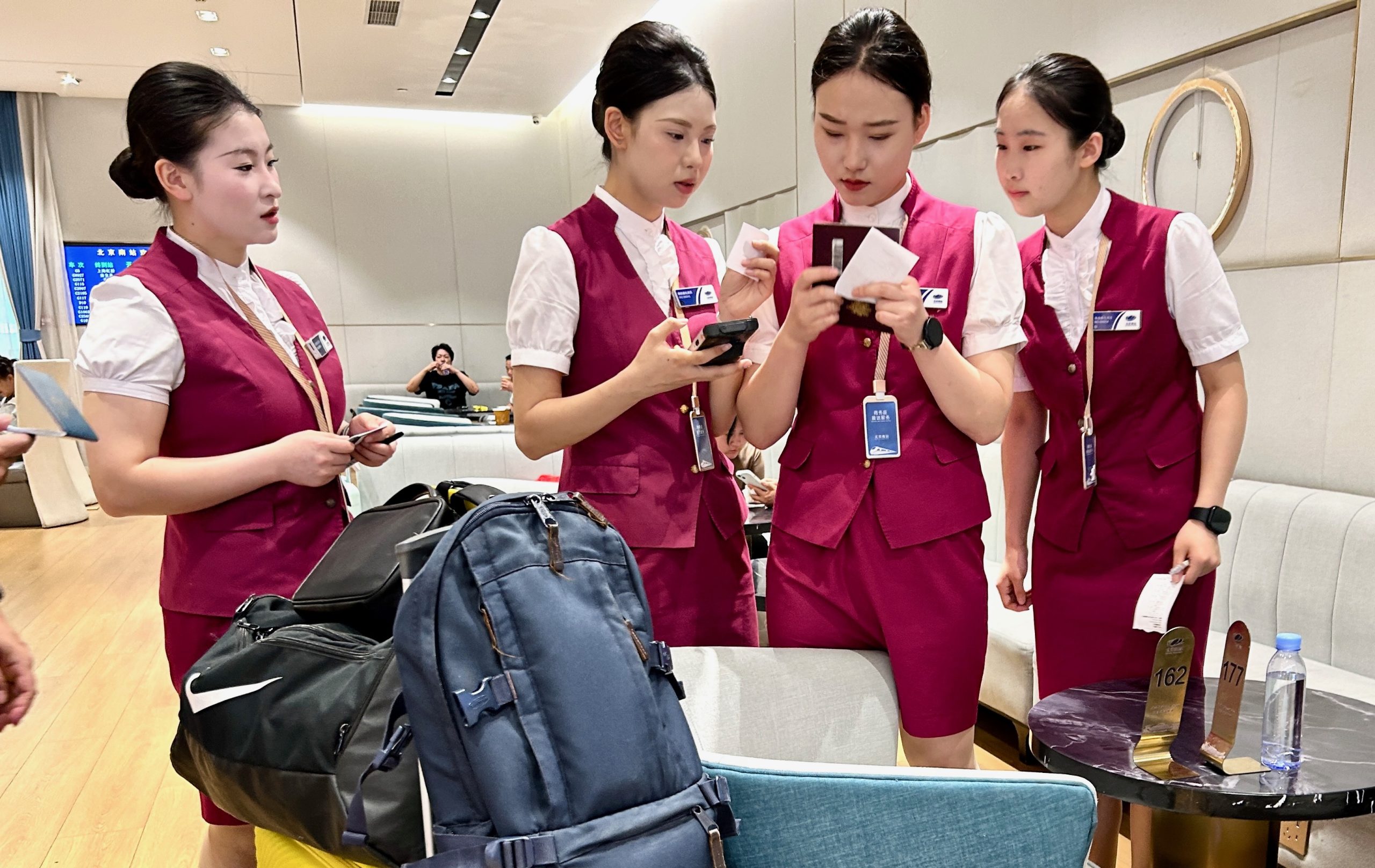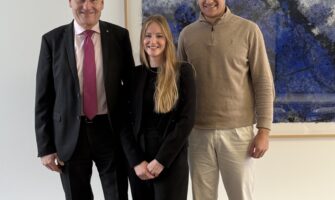16/09/2025
Our most successful European members never miss an Asian conference
Consulting
The referral patterns that explain why geography isn’t your biggest competitive disadvantage—thinking is.
The great European squirm
I’m sitting in a conference with the TGS president in London, watching our European partners squirm as we announce our Global Conference location. Bangkok. Cue the collective intake of breath, the polite coughing, the sudden interest in smartphones.
“But Andrew,” comes the inevitable protest, “it’s so far.”
And there it is—the sentence that perfectly encapsulates everything wrong with how European professional services firms think about global expansion.
Let me tell you a story about Muhanad, one of our members from Qatar. Last year, I caught sight of him scooting through Bangkok traffic on the back of a small motorbike (he sent me the picture recently as a reminder of the last Bangkok trip) —suited and booted, weaving through chaos with the confidence of someone who understands that business happens where business happens, not where it’s convenient.
Meanwhile, back in our comfortable European bubble, we’re calculating flight times and complaining about jet lag.
The numbers don’t lie
Our European members don’t realize that while they’re debating whether Bangkok is worth the inconvenience, our Asia Pacific members have been quietly building something extraordinary: forming relationships, creating opportunities, and establishing footholds in the world’s fastest-growing economic region.
Geography isn’t destiny anymore. Opportunity is.
When we analyzed our network data, the numbers told a story. Our Asian members generate more cross-border referrals per capita than any other region. They’re more likely to participate in global initiatives. They’re more adaptable to changing business conditions. They’re quite simply more internationally minded. And for an international network where everyone asks, ‘What’s my ROI?’ that’s a very clear mindset.
Our ASIA-PAC members are not inherently more global. They’ve had to be.
While European firms could build successful practices serving clients within a few hundred kilometers of their offices, our Asian members have always operated in a world where the most interesting opportunities were three countries and two time zones away. They’ve had to become comfortable with uncomfortable distances.
And now, as the economic center of gravity shifts eastward, guess who’s better positioned for the future?
The Bangkok decision wasn’t really about geography. It was about sending a signal—to our Asian members that we value their contribution, and to our European members that comfort zones are shrinking whether we acknowledge it or not.
What (TGS) global really looks like
I remember a conversation with Mikhail, regional leader in Asia Pacific, TGS board member, who casually mentioned that his team regularly serves clients across Southeast Asia as if it were the most natural thing in the world. Meanwhile, I know European partners who consider crossing the English Channel an international expedition.
The conference agenda we’re developing reflects this reality. We’re not just talking about traditional accounting topics. We’re discussing how AI is reshaping compliance work, how economic turbulence is creating new advisory opportunities, and how firms that think globally—really think globally—are positioning themselves for the next decade.
The Bangkok opportunity
I want our European members to understand this: Bangkok isn’t a punishment for being European. It’s not dangerous and it’s not dodgy. It’s an opportunity to see what the future of international professional services actually looks like. And it’s the one place where we can have the maximum number of our Asian members present.
When you’re forced out of your comfort zone, you discover capabilities you didn’t know you had. You meet people who solve problems differently. You gain perspectives that transform how you serve clients back home.
Some of our new German and Dutch prospective members immediately said they wanted to attend. Not because Germany or the Netherlands is any closer to Bangkok than London is, but because they recognize that being part of a truly global network means occasionally proving you’re serious about being global.
Bangkok is not convenient but it’s essential for European professional services firms who are ready to compete in a world where the most dynamic markets aren’t in Europe.
While we’re debating flight times, our competitors are doing business.
Come to the TGS annual conference in Bangkok
Find out what we learned about the future of charging for global advisory services, how a small Indonesian firm is outperforming major European practices in international client development and why the most successful accounting firms are the ones that stopped thinking like accountants.
Follow me on LinkedIn for insights on transforming traditional practices into high-margin global advisory powerhouses, or subscribe to my “Pivoting to…” newsletter for the strategies that are actually working in today’s international marketplace.



